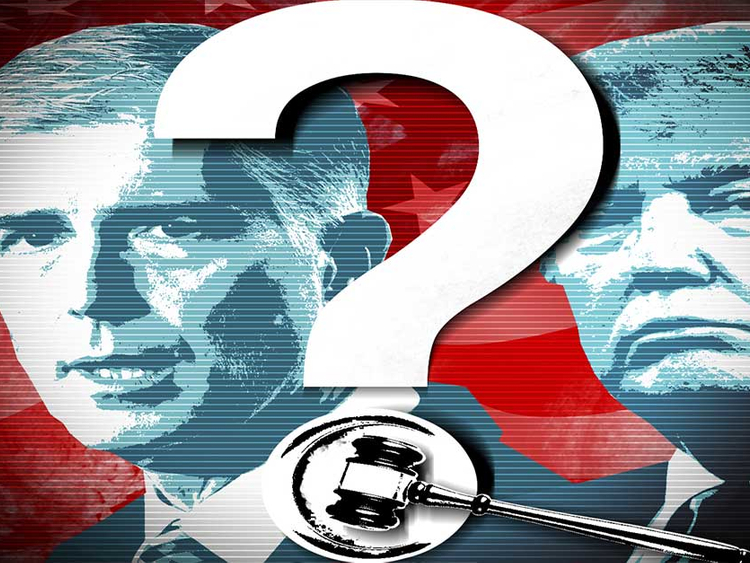Now that Donald Trump has made his pick for the supreme court, Democrats in the US Senate have a whole battery of questions to wrestle with — but there’s one that should loom larger than all the rest.
They will be grappling first with tactical dilemmas. How hard should they fight Trump’s choice of the ultra-conservative judge Neil Gorsuch? Is there a risk that resisting too loudly will push Republicans to change the Senate’s rules — thereby depriving the Democratic minority of their blocking power and leaving them unable to thwart a future, perhaps even more extreme, appointment?
Democrats will also be tempted to oppose Gorsuch on the grounds that his was an appointment Trump should never have had the right to make. This seat on the bench became vacant nearly a year ago, with the death of Antonin Scalia, and it should have been Barack Obama who named Scalia’s replacement. But Republicans simply refused to allow Obama’s choice to get so much as a hearing, on the spurious grounds that it was an election year.
And, of course, Democrats will naturally and rightly want to press Gorsuch for his views on all the momentous issues that the court decides: abortion, money in politics or, most currently, the legitimacy of denying entry to the US to people from seven mainly-Muslim countries.
All of that matters profoundly. But now there is an even more fundamental issue in play, one made urgent by the events of the last few days. For the way the refugee ban was implemented revealed not just cruelty, chaos and racism but an alarming challenge to the US constitution — and even to the rule of law itself.
Recall that once the ban came into force, and would-be arrivals started being detained at or deported from US airports, several federal judges rapidly issued court orders demanding a “stay” or halt to the proceedings. In the normal run of things, the instant such a legal ruling was issued, the policy would come to a stop. Because the law is paramount, the court’s word should have been decisive.
But that’s not how it played out last weekend. Even after the judges had spoken, Customs and Border Protection (CBP) staff continued to enforce Trump’s executive order. CBP officers kept lawyers from speaking to detainees, even after a court judgement had said they could. When elected congressmen and women called and asked for information, the CBP put the phone down on them. And, even after the court rulings, the White House insisted that the executive order still stood.
The significance of this is enormous. It means that the executive — in the form of both the White House and the Customs and Border Protection agency — was refusing to bow to the judiciary. That position was perhaps articulated best by the CBP officer who, when asked by two members of Congress who exactly he was reporting to, answered, “Donald J Trump”.
This is not how a country governed by the rule of law — rather than the rule of men — operates. In authoritarian societies, in a dictatorship, you might expect a border guard to say he obeys the orders of the supreme leader rather than the courts, but that is not what the US constitution demands. It is why the implementation of the refugee ban was not just morally repugnant — witness press secretary Sean Spicer’s defence of the detention of a five-year-old child — but also chilling. And it is why many commentators were raising the prospect of a constitutional crisis.
It sounds overblown, but if Trump’s White House is ready to defy the courts, then that is precisely the right term. The courts are meant to be supreme: nobody, not even the president, is above the law. (This was the issue at the core of the Watergate scandal.) The trouble is, the courts have no means of enforcement — no battalions — of their own. (A limited number of US marshals doesn’t really count.) So if the executive decides to ignore the judges, it is the executive — the president — who has the muscle. The only institution that can stop him is the Congress, through the power of impeachment. But that is of little comfort when the Congress is safely in the hands of the president’s party.
All this can seem abstract or hypothetical. But the way Trump’s White House responded to the prospect of legal restraint on the refugee ban is a warning. As was Trump’s remark during the TV debates last autumn when confronted with evidence of his rule-breaking: “You should have stopped me,” he said. Now that he’s president, there is very little that can stop him.
When Democrats get the chance to question Gorsuch they should confront him with this question. They ought to get him on the record stating that the constitution bars a president from profiting from his office, which experts say Trump is already doing; that the constitution gave Obama the right to pick Scalia’s replacement and Republicans acted unconstitutionally in blocking him; and, above all, that the executive was wrong to ignore those rulings on the refugee ban.
In other words, even if they cannot block Gorsuch they have a chance to reassert the rule of law against a president who threatens it profoundly. They should use it.
— Guardian News and Media Limited
Jonathan Freedland is a weekly columnist and writer for the Guardian. He is also a regular contributor to the New York Review of Books and presents BBC Radio 4’s contemporary history series, The Long View.











